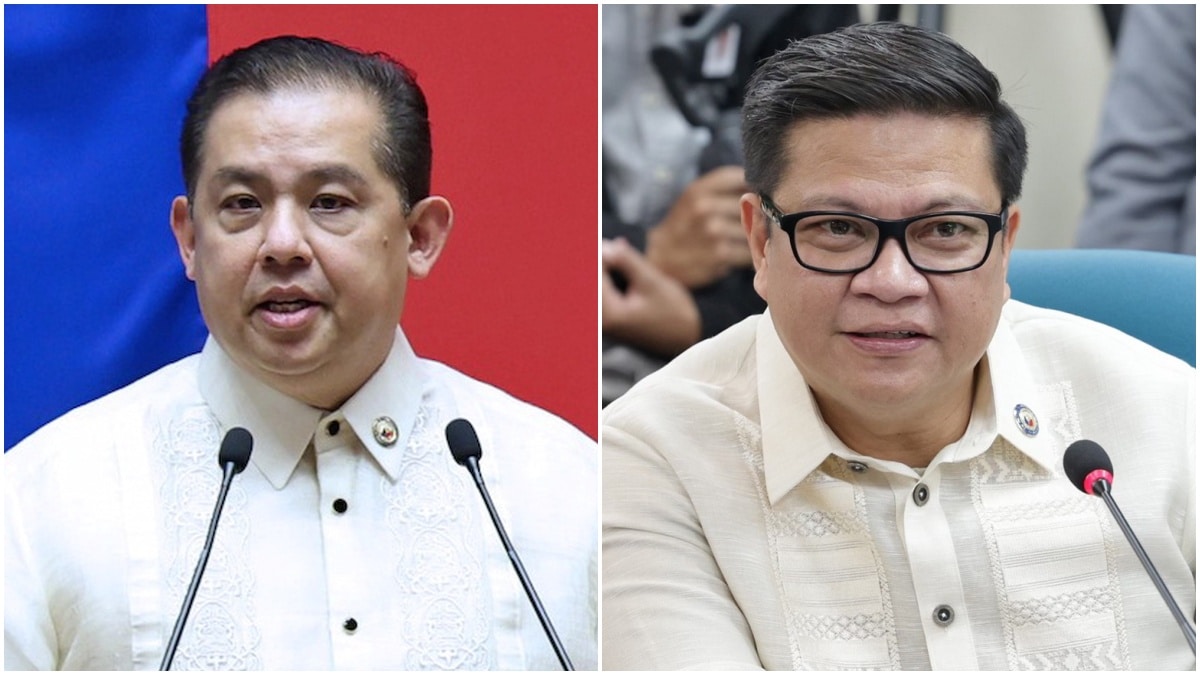House poised to pass P6.352-T budget this week
MANILA, Philippines — The House of Representatives is set to approve the P6.352-trillion national budget for next year before Congress goes into break as President Marcos is expected to certify as urgent the 2025 general appropriations bill (GAB).
The figure is a 10.1 percent increase from the current national budget of P5.768 trillion, as the Department of Budget and Management had also earlier projected.
House Majority Leader and Zamboanga City Rep. Manuel Dalipe said that once Marcos certifies House Bill No. 10800, or the proposed 2025 budget, as urgent, the House could approve it on the second and third reading on the same day.
READ: House starts plenary debates for P6.352-trillion 2025 national budget
The chamber is planning to finish this on Wednesday (Sept. 25), or after two weeks of plenary debates, before its recess by the end of the month.
Article continues after this advertisementDalipe said before the proposed 2025 national budget is approved on final reading, the chamber will hear the “Turno En Contra (opposition)” remarks on the outlay followed by the period of amendments.
Article continues after this advertisementHe pointed out that due to the expected numerous suggestions for amendments, the House would create a small committee to take charge of the proposals.
Prosperity agenda
Speaker Martin Romualdez pointed out that the House was sticking to its timeline of scrutinizing and approving the proposed 2025 budget “because we are treating the national spending program with urgency without sacrificing transparency.”
He pointed out that the approval of the outlay before Congress goes into recess would afford the Senate enough time for its own debate-passage process, adding, “we have sufficient time to finally agree on the budget before yearend.”
He said the 2025 GAB “will serve as our tool for sustained economic development,” adding that it “will support the Agenda for Prosperity programs of President Ferdinand Marcos Jr.”
Romualdez said next year’s budget would also “serve as an instrument for the government to spread the dividends of economic progress through various social protection and financial assistance initiatives, and funding for infrastructures like roads, hospitals, classrooms, seaports and airports, irrigation systems, and transportation networks.”
“We hope our people will feel the benefits of growth through the programs intended for them in the national budget,” he said.
Marathon sessions
The House has been conducting marathon plenary sessions every day since Sept. 16 starting at 10 a.m. until the agenda for the day, consisting of different agencies, was finished.
During its first week of plenary debates, the House approved the proposed funding for the Department of Finance, Department of Justice, Department of Human Settlements and Urban Development, Department of the Interior and Local Government, Department of Tourism, Department of Labor and Employment, National Economic and Development Authority, the judiciary, Office of the Ombudsman and Commission on Human Rights.
Also approved were the budgets for the Commission on Elections, Presidential Communications Office, Metropolitan Manila Development Authority, state universities and colleges, government corporations, and the Department of Agrarian Reform, Department of Foreign Affairs, Department of Trade and Industry, Department of National Defense, Department of Migrant Workers and Department of Science and Technology.
Realignment
Scheduled to be tackled on Monday are the proposed budgets for the Office of the President, Office of the Vice President (OVP), National Irrigation Administration, Energy Regulatory Commission, Civil Service Commission, Commission on Audit, Congress, Department of Agriculture, Department of Health (DOH), Department of Energy, Department of Environment and Natural Resources, Department of Transportation, Department of Social Welfare and Development (DSWD), Department of Public Works and Highways, and Department of Education.
While deliberations on many of the budget proposals of different agencies went smoothly, that of the OVP proved contentious following the failure of Vice President Sara Duterte to attend or answer questions by lawmakers.
In the end, the House committee on appropriations last week recommended slashing the proposed OVP budget of P2.037 billion for 2025 to only P733.198 million.
Panel senior vice chair and Marikina Rep. Stella Quimbo said the OVP budget was cut by P1.29 billion, affecting the social service programs of Duterte’s office, adding that lawmakers intended to realign that money to other government agencies such as the social welfare and health departments.
“The committee on appropriations decided to recommend a reduced budget for the Office of the Vice President and the reduction shall be split by the DSWD AICS (Assistance to Individuals in Crisis Situation) program and the DOH MAIFIP (Medical Assistance to Indigent and Financially Incapacitated Patients) program,” Quimbo said.
Earlier, Duterte said she did not mind having her office totally defunded, adding that she saw it as part of an alleged coordinated attack against her.
“We also heard that there will be defunding—the Office of the Vice President’s budget will be defunded. We also heard that it’s possible they will only give the Office of the Vice President a budget of only P1. We are ready. I am ready in the Office of the Vice President to work even without a budget,” Duterte was quoted as saying in Filipino.
“Our operations are small. We can certainly work even without a budget. We know that’s part of the attack. So we will continue to do what we need to do for the people,” she said.
